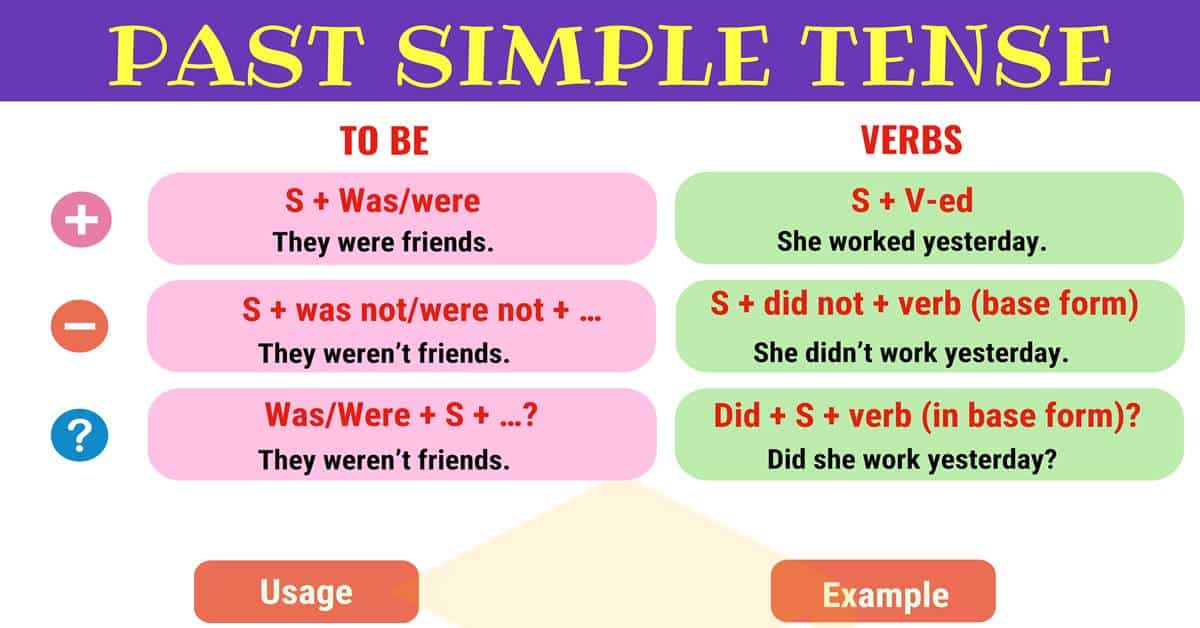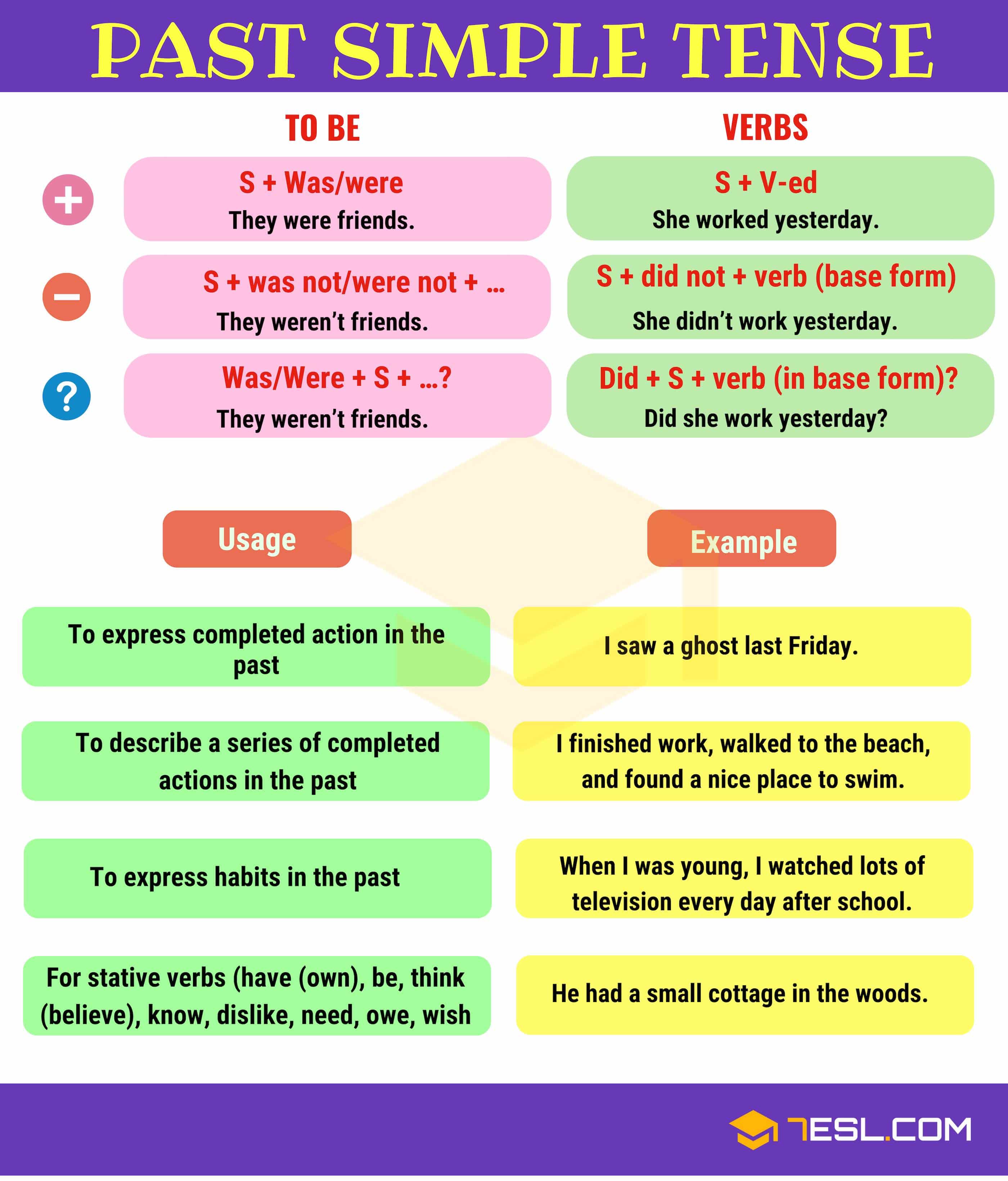Past Simple Tense! When talking about an action which has happened in the past, you will need to use the past simple tense. However, before you can begin confidently using this tense, it is important to learn the rules which surround it. As with any part of English grammar, the rules of the past simple tense should be applied each time it is used in order to ensure that you are forming grammatically correct sentences. In this section, we are going to show you how to do this effectively.
Learn useful grammar rules to use the Simple Past Tense in English with example sentences and ESL printable worksheets.
Past Simple Tense
In English grammar, the Simple Past (or Past Simple) is the basic form of the past tense. It is used principally to describe events in the past, although it also has some other uses.
What is the Past Simple Tense?
The simple past tense shows that an action started and completed in the past and has no relevance to the present time at all. It can also be used to describe how someone felt, what their emotional condition was, at a point in the past. There are no forms of the verb to be’ or to have’ with this tense as there are with others (e.g. walked).
The simple past can be used with adverbs to describe a time already in the past (e.g. I walked to the market last Saturday) or discussing a specific point in time (e.g. I studied today).
In the section below are several examples illustrating some ways in which the simple present tense can be used. In the final section are several practice questions that will give some focus to how you can identify the simple past verb tense looks like when used correctly. It is always highly recommended to refer to a thesaurus or dictionary when becoming more familiar with not just a second language but one’s primary language as well.
Simple Past Tense Structure
Simple Past Tense with “TO BE” (was/were)
Note:
I/She/He/It + was
We/You/They + were
Was not = Wasn’t
Were not = Weren’t
Positive Sentence:
S + was/were + …
Example:
They were friends.
Negative Sentence:
S + was not/were not + …
Example:
They weren’t friends.
Question form:
Was/Were + S + …?
Example:
Were they friends?
Simple Past Tense with Regular Verbs
Regular English verbs form the simple past in –ed; however, there are a few hundred irregular verbs with different forms.
Positive Sentence:
S + verb-ed + …
Example:
She worked yesterday.
Negative Sentence:
S + did not/didn’t + verb (in base form) + …
Example:
She didn’t work yesterday.
Question form:
Did + S + verb (in base form)?
Example:
Did she work yesterday?
Past Simple Tense with Irregular Verbs
There are a few hundred irregular verbs with different forms.
Positive Sentence:
S + irregular verb + …
Example:
They went to Spain for their holidays.
Negative Sentence:
S + did not/didn’t + verb (in base form) + …
Example:
They didn’t go to Spain for their holidays?
Question Form:
Did + S + (verb in base form)?
Example:
Did they go to Spain for their holidays?
Examples of the Past Simple Tense
- My teacher taught me about the planets, moon, and stars in the third grade.
- Our local high school held a car wash to raise money for the band.
- I felt scared when the power went out during the thunderstorm last night.
- My boss called me into the office to help with an outage on Sunday night.
- I really appreciate when you gave me half your lunch yesterday.
- While I was sleeping, the cat yowled very loudly all night long.
- My team had a potluck’ last week but forgot to send out the invitations!
- My mom picked me up after school all week long when I had to stay for an extra practice session.
- Dad took me to the movies and out for pizza for my birthday.
- I was so proud the day my oldest child graduated from college with honors.
How to Use the Simple Past Tense
The Simple Past Tense Usage
The Simple Past is used:
- To express completed action in the past
Example:
I saw a ghost last Friday.
- To describe a series of completed actions in the past
Example:
I finished work, walked to the beach, and found a nice place to swim.
- To express habits in the past
Example:
When I was young, I watched lots of television every day after school.
- For stative verbs, which are verbs that do not express an action, but a state of mind or being E.g. have (own), be, think (believe), know, dislike, need, owe, understand, wish
Example:
He had a small cottage in the woods.
Time Expressions with Past Simple Tense
- Yesterday
- Ago
- Last month
- Last week
- Last year
- In 2003
- In 2007
- …









0 Comments